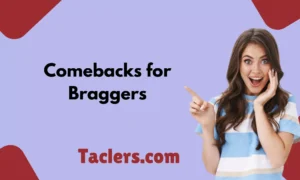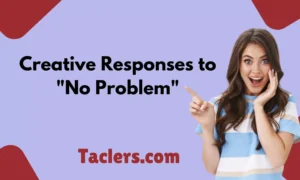Supporting a friend undergoing a colonoscopy can be both comforting and reassuring. Offering the right words of encouragement can help ease their anxiety and show them that you care.
Here are 30 thoughtful and supportive things to say to a friend who is preparing for or recovering from a colonoscopy.
1. “I’m here for you—every step of the way.”
Explanation:
This response reassures your friend that they are not alone during their procedure.
Example:
Friend A: “I’m nervous about my colonoscopy tomorrow.”
Friend B: “I’m here for you—every step of the way.”
By saying “I’m here for you,” you provide emotional support and solidarity.
2. “You’re being proactive about your health, and that’s amazing.”
Explanation:
Acknowledges their decision to take care of their health and encourages a positive outlook.
Example:
Friend A: “I’m worried about the procedure.”
Friend B: “You’re being proactive about your health, and that’s amazing.”
By saying “Being proactive,” you highlight their positive action.
3. “It’s a common procedure and you’re in good hands.”
Explanation:
Offers reassurance by emphasizing the routine nature of the procedure and the competence of medical professionals.
Example:
Friend A: “I’m scared about the colonoscopy.”
Friend B: “It’s a common procedure and you’re in good hands.”
By saying “In good hands,” you build trust in the medical team.
4. “Let me know if there’s anything I can do to help.”
Explanation:
Offers practical assistance and shows your willingness to support them.
Example:
Friend A: “I’m feeling anxious about the prep.”
Friend B: “Let me know if there’s anything I can do to help.”
By saying “Anything I can do,” you offer tangible support.
5. “You’ve got this! Just remember to breathe.”
Explanation:
Provides encouragement and a simple coping mechanism for managing anxiety.
Example:
Friend A: “I’m really nervous about the procedure.”
Friend B: “You’ve got this! Just remember to breathe.”
By saying “Remember to breathe,” you offer a practical tip for handling stress.
6. “I’m sure everything will go smoothly. You’re strong and resilient.”
Explanation:
Reinforces confidence in their strength and the expected positive outcome of the procedure.
Example:
Friend A: “I’m worried about the results.”
Friend B: “I’m sure everything will go smoothly. You’re strong and resilient.”
By saying “Strong and resilient,” you emphasize their inner strength.
7. “You’re doing the right thing by getting this done. Proud of you!”
Explanation:
Affirms their decision to undergo the procedure and expresses pride in their choice.
Example:
Friend A: “I’m not looking forward to this.”
Friend B: “You’re doing the right thing by getting this done. Proud of you!”
By saying “Proud of you,” you offer validation and encouragement.
8. “If you need someone to talk to or distract you, I’m here.”
Explanation:
Offers emotional support and companionship to help them through the process.
Example:
Friend A: “I’m feeling anxious about the procedure.”
Friend B: “If you need someone to talk to or distract you, I’m here.”
By saying “I’m here,” you provide comfort and distraction.
9. “It’s normal to feel nervous. You’re doing great just by taking this step.”
Explanation:
Normalizes their feelings of nervousness and praises their proactive approach.
Example:
Friend A: “I’m so nervous about this.”
Friend B: “It’s normal to feel nervous. You’re doing great just by taking this step.”
By saying “Doing great,” you offer reassurance and validation.
10. “I’m sending positive thoughts and good vibes your way.”
Explanation:
Expresses your support through positive and uplifting sentiments.
Example:
Friend A: “I’m anxious about tomorrow.”
Friend B: “I’m sending positive thoughts and good vibes your way.”
By saying “Positive thoughts,” you offer emotional support and optimism.
11. “You’re taking charge of your health and that’s really admirable.”
Explanation:
Recognizes their proactive approach to health and offers praise.
Example:
Friend A: “I’m feeling a bit scared.”
Friend B: “You’re taking charge of your health and that’s really admirable.”
By saying “Admirable,” you highlight the value of their actions.
12. “I’ll be thinking of you and hoping for the best results.”
Explanation:
Shows support by expressing your hopes for a positive outcome.
Example:
Friend A: “I’m worried about what they’ll find.”
Friend B: “I’ll be thinking of you and hoping for the best results.”
By saying “Hoping for the best,” you convey optimism and support.
13. “You’re not alone in this. I’m just a call away.”
Explanation:
Reassures them that you’re available for support at any time.
Example:
Friend A: “I’m feeling alone with all this.”
Friend B: “You’re not alone in this. I’m just a call away.”
By saying “Just a call away,” you emphasize your availability and support.
14. “Remember, this is just one step toward better health.”
Explanation:
Frames the procedure as a positive step towards improved health.
Example:
Friend A: “I’m worried about the process.”
Friend B: “Remember, this is just one step toward better health.”
By saying “Better health,” you focus on the long-term benefits.
15. “You’re handling this with such grace. I’m here if you need anything.”
Explanation:
Compliments their approach and offers your support.
Example:
Friend A: “I’m trying to stay calm, but it’s hard.”
Friend B: “You’re handling this with such grace. I’m here if you need anything.”
By saying “Handling with grace,” you acknowledge their effort and provide support.
16. “I’m confident you’ll come through this just fine.”
Explanation:
Provides reassurance and confidence in their ability to handle the situation.
Example:
Friend A: “I’m anxious about the procedure.”
Friend B: “I’m confident you’ll come through this just fine.”
By saying “Confident you’ll come through,” you express strong belief in their outcome.
17. “You’ve got this under control. Just focus on getting through it.”
Explanation:
Encourages them to stay focused on the positive aspect of handling the procedure.
Example:
Friend A: “I’m really stressed about this.”
Friend B: “You’ve got this under control. Just focus on getting through it.”
By saying “Got this under control,” you boost their confidence.
18. “I’m here to support you, whether it’s before, during, or after the procedure.”
Explanation:
Offers support at all stages of the process.
Example:
Friend A: “I’m worried about everything that comes with this.”
Friend B: “I’m here to support you, whether it’s before, during, or after the procedure.”
By saying “Before, during, or after,” you provide comprehensive support.
19. “Let’s plan something fun for when you’re feeling better.”
Explanation:
Offers a positive distraction and something to look forward to after the procedure.
Example:
Friend A: “I’m feeling down about this.”
Friend B: “Let’s plan something fun for when you’re feeling better.”
By saying “Plan something fun,” you give them something to anticipate positively.
20. “I’m rooting for you and looking forward to hearing how it went.”
Explanation:
Expresses support and eagerness to hear about their experience afterward.
Example:
Friend A: “I’m nervous about tomorrow.”
Friend B: “I’m rooting for you and looking forward to hearing how it went.”
By saying “Rooting for you,” you show enthusiasm and support.
21. “You’re doing something important for your health, and I’m proud of you.”
Explanation:
Affirms their decision and expresses pride in their actions.
Example:
Friend A: “I’m feeling overwhelmed by this.”
Friend B: “You’re doing something important for your health, and I’m proud of you.”
By saying “Proud of you,” you highlight the significance of their action.
22. “Just remember, this is a step towards feeling better overall.”
Explanation:
Frames the procedure as a positive step towards improved health.
Example:
Friend A: “I’m so anxious about this.”
Friend B: “Just remember, this is a step towards feeling better overall.”
By saying “Feeling better overall,” you focus on the long-term benefits.
23. “You’re being incredibly brave. I admire your strength.”
Explanation:
Compliments their courage and resilience in facing the procedure.
Example:
Friend A: “I’m really scared about what’s coming.”
Friend B: “You’re being incredibly brave. I admire your strength.”
By saying “Admire your strength,” you acknowledge their bravery.
24. “I’m here to listen if you need to talk about anything.”
Explanation:
Offers a listening ear for any concerns or feelings they wish to share.
Example:
Friend A: “I need to talk about how I’m feeling.”
Friend B: “I’m here to listen if you need to talk about anything.”
By saying “Here to listen,” you provide emotional support.
25. “You’re making a smart choice for your health. I’m cheering you on!”
Explanation:
Supports their decision and offers encouragement.
Example:
Friend A: “I’m not looking forward to this.”
Friend B: “You’re making a smart choice for your health. I’m cheering you on!”
By saying “Cheering you on,” you show enthusiasm and support.
26. “I know this isn’t easy, but you’re doing an amazing job.”
Explanation:
Acknowledges the difficulty of the situation and praises their efforts.
Example:
Friend A: “This is really tough for me.”
Friend B: “I know this isn’t easy, but you’re doing an amazing job.”
By saying “Doing an amazing job,” you provide positive reinforcement.
27. “Just take it one step at a time. You’re handling this well.”
Explanation:
Encourages them to manage the situation incrementally and praises their handling of it.
Example:
Friend A: “I’m overwhelmed by all of this.”
Friend B: “Just take it one step at a time. You’re handling this well.”
By saying “Handling this well,” you offer validation and encouragement.
28. “I’ll be checking in on you. Let me know if you need anything.”
Explanation:
Shows that you will be actively supporting them and offers help.
Example:
Friend A: “I’m unsure about how I’ll feel after the procedure.”
Friend B: “I’ll be checking in on you. Let me know if you need anything.”
By saying “Checking in on you,” you offer ongoing support.
29. “You’re taking an important step for your health. I’m here to support you.”
Explanation:
Affirms the significance of their action and offers your support.
Example:
Friend A: “I’m nervous about the procedure.”
Friend B: “You’re taking an important step for your health. I’m here to support you.”
By saying “Important step,” you highlight the value of their decision.
30. “I’m confident that everything will turn out well. You’ve got this.”
Explanation:
Provides reassurance and confidence in a positive outcome.
Example:
Friend A: “I’m feeling anxious about tomorrow.”
Friend B: “I’m confident that everything will turn out well. You’ve got this.”
By saying “You’ve got this,” you offer strong support and optimism.

Ethan Richards, a distinguished writer at Taclers.com, excels in blending sharp insights with engaging storytelling. His background in sociology adds depth to his analysis of human reactions, making his articles both thought-provoking and entertaining. Explore the world of reactions with Ethan and see familiar moments in a whole new light.










